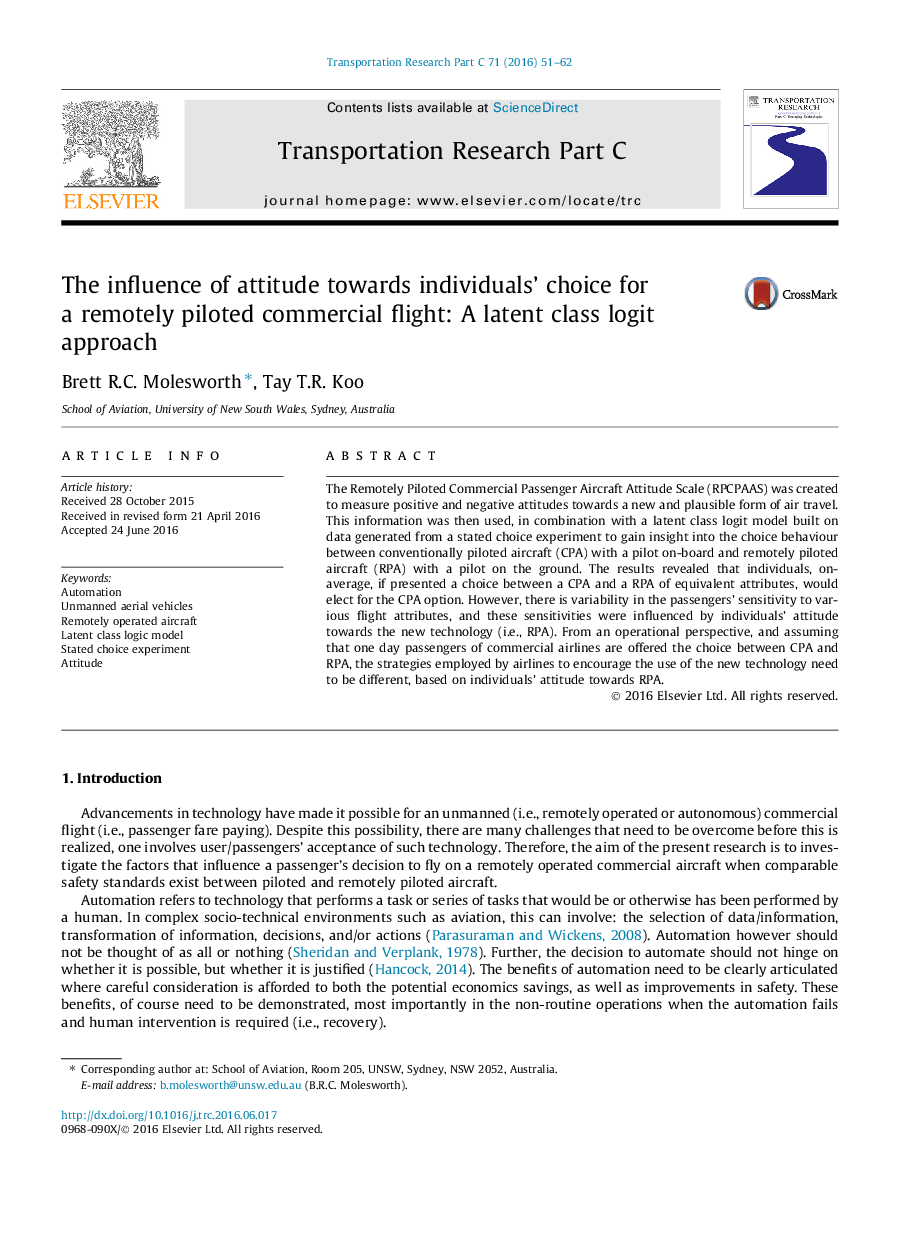| Article ID | Journal | Published Year | Pages | File Type |
|---|---|---|---|---|
| 526223 | Transportation Research Part C: Emerging Technologies | 2016 | 12 Pages |
•Individuals’ attitude towards a remotely piloted commercial passenger aircraft was investigated.•A stated choice experiment was employed to investigate choice behaviour of potential passengers.•Respondents preferred a conventionally piloted aircraft opposed to a remotely piloted aircraft.
The Remotely Piloted Commercial Passenger Aircraft Attitude Scale (RPCPAAS) was created to measure positive and negative attitudes towards a new and plausible form of air travel. This information was then used, in combination with a latent class logit model built on data generated from a stated choice experiment to gain insight into the choice behaviour between conventionally piloted aircraft (CPA) with a pilot on-board and remotely piloted aircraft (RPA) with a pilot on the ground. The results revealed that individuals, on-average, if presented a choice between a CPA and a RPA of equivalent attributes, would elect for the CPA option. However, there is variability in the passengers’ sensitivity to various flight attributes, and these sensitivities were influenced by individuals’ attitude towards the new technology (i.e., RPA). From an operational perspective, and assuming that one day passengers of commercial airlines are offered the choice between CPA and RPA, the strategies employed by airlines to encourage the use of the new technology need to be different, based on individuals’ attitude towards RPA.
